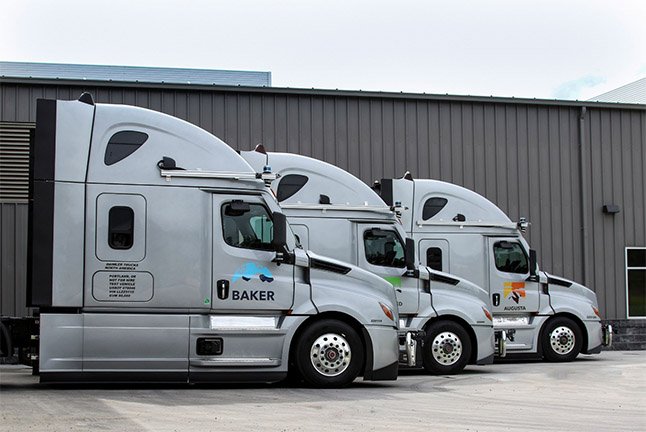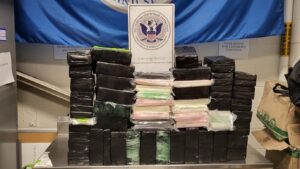SANTA FE, N.M.— Daimler Trucks and allied vehicle software company Torc Robotics announced this week the expansion of testing for self-driving trucks to public roads in New Mexico along major long-haul freight routes.
The companies have established a new testing center in Albuquerque, as they begin automated runs for 18-wheel vehicles with autonomous diving technology on public highways — supported by a human driver and a safety conductor.
Daimler’s Autonomous Technology Group has taken aim at commercializing self-driving trucks within a decade, and the new testing location complements ongoing research on roadways in Virginia with milder weather and fewer steep hills.
“The reason that we started the test center in Southwest is, one, there’s a lot of cargo that gets transported in that region,” Torc Robotics CEO Michael Fleming said. “We’re not really faced with severe snow and ice like we find it the Northeast, and at the same time, the environmental terrain is a little bit easier as well.”
Arizona already serves as a major testing ground for autonomous vehicles, including a public-private partnership involving major public universities that was announced in 2018. Arizona Gov. Doug Ducey suspended Uber’s self-driving vehicle testing privileges in March 2018 in the wake of a pedestrian fatality in a Phoenix suburb.
“After one year of collaboration with Torc, we have successfully deployed trucks with SAE Level 4 intent technology on public roads and expanded our test fleet with trucks, miles and learnings,” said Martin Daum, chairman of the Board of Management of Daimler Truck AG and member of the Board of Management of Daimler AG. “Partnering with Torc has created a unique and even more powerful team of innovators at Daimler Trucks. We remain fully committed to this collaboration and to focusing on the shared goal of bringing highly automated trucks to series production.”
Daimler’s testing routes in New Mexico are not publicly disclosed, thought the trucks are prominently labeled as Daimler autonomous-driving vehicles.
The on-board, self-driving technology keeps trucks on track by using a combination of sensors that employ radar, cameras and lasers for measuring distances.
In a news release, the companies said all automated runs require both a safety conductor and a safety driver who holds a commercial driver’s license and undergoes special training in extreme vehicle dynamics and automated systems.
Fleming said that engineering challenges in autonomous trucking revolve around responses to other moving vehicles.
“The real challenge comes when we have bad actors or other vehicles on the road doing things that they shouldn’t be doing,” he said. “When you have one bad actor, it’s not that complicated. But when you have clusters of bad actors, things become much more challenging and difficult. One of the things that we’ve spent a lot of time doing is figuring out what’s the most appropriate action or behavior in some of these complex situations.”
Torc says it has tested its self-driving vehicle system in many states in the U.S., including a cross country trip in 2017.
The New Mexico research center suggests an increasing commitment to autonomous driving by Daimler Trucks & Buses, which delivered roughly a half-million trucks and buses to customers in 2019.
“We know this will not happen overnight, but with our priority and vision for safer roads and efficiencies for our customers, we are committed to the journey,” said Roger Nielsen, Daimler Trucks board member and president and CEO of Daimler Trucks North America. “We listen carefully to our customers and we see potential to deliver commercial value to them and to society.”
The Associated Press is an independent global news organization dedicated to factual reporting. Founded in 1846, AP today remains the most trusted source of fast, accurate, unbiased news in all formats and the essential provider of the technology and services vital to the news business. The Trucker Media Group is subscriber of The Associated Press has been granted the license to use this content on TheTrucker.com and The Trucker newspaper in accordance with its Content License Agreement with The Associated Press.









Daimler Trucks expands testing of self-driving vehicles in U.S. Southwest
Comment